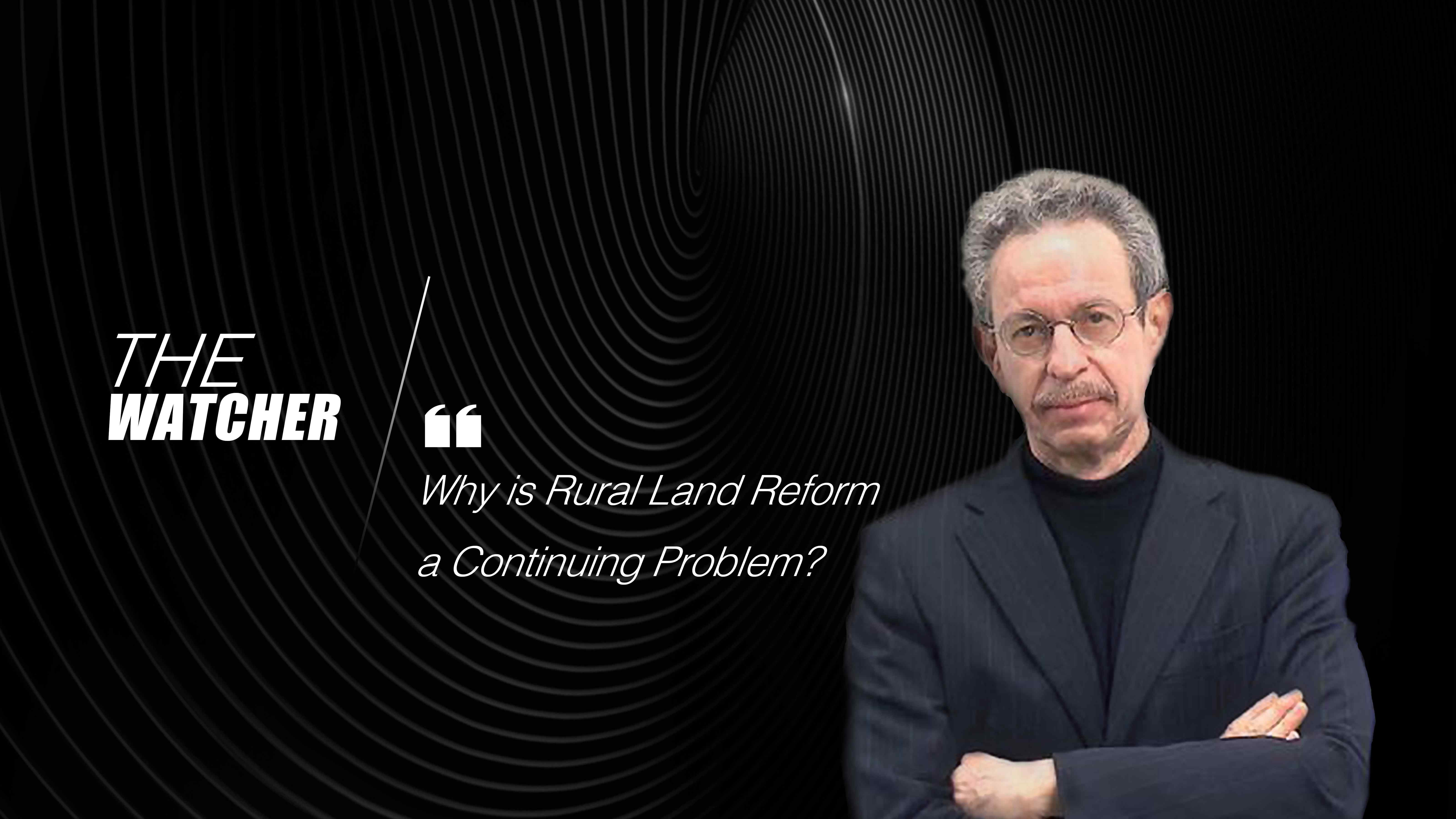
Opinions
16:55, 10-May-2018
The Watcher: Why is rural land reform a continuing problem?
By Robert L. Kuhn
03:50

I’m Robert Lawrence Kuhn and here’s what I’m watching: Rural land reform.
Why is rural land reform such a continuing problem in China that it has been highlighted in every Party Congress and every annual meeting of the nation’s highest legislative and consultative bodies?
To ensure that the world's largest population has sufficient food, and to improve the well-being of rural residents, are high priorities.
More than a decade ago, a leading rural expert told me: “Historically, few countries, by the time they have reached the middle phase of industrialization, would still be plagued by agricultural issues. The fact that China is still dealing with agriculture is a sign that the countryside farmer situation has never been handled properly.”
But, he stressed, “It’s not for lack of government concern.” Why then the continuing problem? Another rural expert had a cynical answer: “Everyone wants more in their own pockets,” he said. “Vested interests create rigid structures…That’s why, after 30 years of reform, the task ahead is still tough.” The problem goes deeper.
The Communist Party of China, the CPC, came to power supported by peasants in rural areas; the CPC was a party of farmers, workers and soldiers.
Yet, farmers could not own their own land – according to socialist ideology at the time. The country as a whole, not the people in the country, needed to own the land.
So when Deng Xiaoping began market reforms, and individual land ownership was required for economic efficiency, a leasehold system with operational rights was set up.
This led to the creation of great wealth in urban areas, but ironically, the farmers, the backbone of the revolution, were left behind. Finally, this is being rectified.
As a pilot, 129 rural collectively-owned assets and stock-rights enterprises combine peasants’ interests to enable more efficient agriculture - often by leasing the land to large agricultural enterprises which can leverage modern technologies.
It is not uncommon that farmers working for large companies are paid rent for their land as well as salaries for their labor.
Questions remain, such as what happens if a farmer moves to a city and becomes a migrant worker?
What happens when the farmer dies? Can his children inherit the property with all rights?
In 2018, the pilot program will expand to 300 counties, with the goal of basically completing the reform by 2021.
Many quote former CPC General Secretary Hu Yaobang, who said: “If we don’t solve the problem of rural areas, and the problem of peasants, the Four Modernizations will be empty talk.”
Empty talk? President Xi Jinping eschews “empty talk.” Having spent his early career as a local official in rural areas, he is determined to advance rural reforms.
I’m keeping watch. I’m Robert Lawrence Kuhn.

SITEMAP
Copyright © 2018 CGTN. Beijing ICP prepared NO.16065310-3
Copyright © 2018 CGTN. Beijing ICP prepared NO.16065310-3